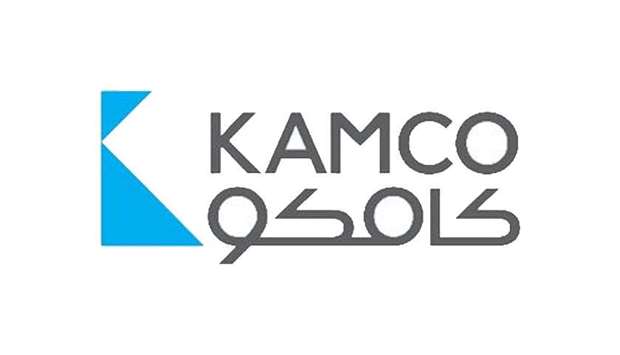The outlook for initial public offerings (IPO) in the Gulf Co-operation Council (GCC) this year will depend on secondary equity markets and oil price stability, even as the GCC sovereigns continue to propel the non-oil economy by largely maintaining their budget spending, according to Kamco Research.
"The issuers are likely to watch the development of secondary markets early on in 2019, and also ascertain whether taking the debt market route for capital needs would be viable," Kamco said in a report.
The REIT (real estate investment trusts) IPO volumes are likely to come down over structural issues affecting fundamental demand for real estate, and declining spreads between returns of REITs and deposit rates for safer time deposits going forward, it said.
"Nevertheless, we believe that companies from the GCC with unique business models, industry classification and ability to show capital efficiency should continue to garner increased interest from both the local and international investors looking at IPO participation," it added.
Highlighting that the IPO participation in the region came in from all GCC countries, Kamco said Qatar Aluminium Manufacturing Company gained 33.5% from its offer price at the end of 2018, but was down by 25.8% from the listing price that the company’s shares opened at, on the Qatar Stock Exchange.
Gulf IPOs remained active in 2018, although primary market issuances cooled off from 2017 levels, both in number of issuances and capital raised, Kamco said, adding total number of corporate IPOs and REIT IPOs combined in the region declined to 18 from 28 in 2017, but remained higher than those in 2015 (six issuances) and 2016 (four issuances).
Finding that capital raised via IPOs fell 18% to $2.7bn in 2018, Kamco said nevertheless, unlike in 2017 where REITs dominated the IPOs in the GCC, corporate IPOs led primary markets in 2018, as they contributed 56% of the number of issuances and 62% of the capital raised.
Moreover, the GCC witnessed the widest participation from issuers within the region, as capital was raised from issuers across the GCC, it said.
"Having said that, although the IPO market in the region has picked up in 2017 and 2018, corporate issuers continue to look for reduced volatility in oil prices, and a stable near term outlook for secondary markets within the region, to take to the primary market," it said.
Kamco said global IPO activity in 2018 was mixed, while equity markets waded through ongoing trade rifts between the US and China, geopolitics, and volatility in secondary equity markets, after starting the year strong with higher liquidity and strong valuations.
Global IPO volumes reportedly fell 21% year-on-year to 1,359 IPOs in 2018, while the IPO proceeds grew 6% to $204.8bn in 2018, an Ernst & Young (EY) study found.
According to EY, the increase in capital proceeds was largely driven by a number of unicorn IPOs (40 IPOs raked in $32.2bn) and mega IPOs.
The REIT (real estate investment trusts) IPO volumes are likely to come down over structural issues affecting fundamental demand for real estate, and declining spreads between returns of REITs and deposit rates for safer time deposits going forward, it said.
"Nevertheless, we believe that companies from the GCC with unique business models, industry classification and ability to show capital efficiency should continue to garner increased interest from both the local and international investors looking at IPO participation," it added.
Highlighting that the IPO participation in the region came in from all GCC countries, Kamco said Qatar Aluminium Manufacturing Company gained 33.5% from its offer price at the end of 2018, but was down by 25.8% from the listing price that the company’s shares opened at, on the Qatar Stock Exchange.
Gulf IPOs remained active in 2018, although primary market issuances cooled off from 2017 levels, both in number of issuances and capital raised, Kamco said, adding total number of corporate IPOs and REIT IPOs combined in the region declined to 18 from 28 in 2017, but remained higher than those in 2015 (six issuances) and 2016 (four issuances).
Finding that capital raised via IPOs fell 18% to $2.7bn in 2018, Kamco said nevertheless, unlike in 2017 where REITs dominated the IPOs in the GCC, corporate IPOs led primary markets in 2018, as they contributed 56% of the number of issuances and 62% of the capital raised.
Moreover, the GCC witnessed the widest participation from issuers within the region, as capital was raised from issuers across the GCC, it said.
"Having said that, although the IPO market in the region has picked up in 2017 and 2018, corporate issuers continue to look for reduced volatility in oil prices, and a stable near term outlook for secondary markets within the region, to take to the primary market," it said.
Kamco said global IPO activity in 2018 was mixed, while equity markets waded through ongoing trade rifts between the US and China, geopolitics, and volatility in secondary equity markets, after starting the year strong with higher liquidity and strong valuations.
Global IPO volumes reportedly fell 21% year-on-year to 1,359 IPOs in 2018, while the IPO proceeds grew 6% to $204.8bn in 2018, an Ernst & Young (EY) study found.
According to EY, the increase in capital proceeds was largely driven by a number of unicorn IPOs (40 IPOs raked in $32.2bn) and mega IPOs.


